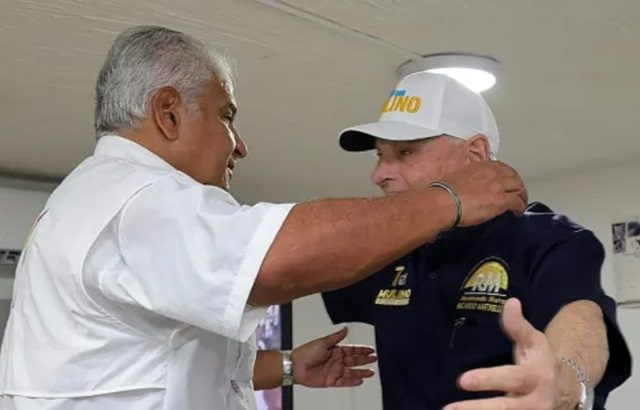BTN News: Panama’s political scene is buzzing due to a new proposal from deputy Luis Eduardo Camacho. This proposal aims to make the laws around amnesty, pardon, and sentence reduction clearer. The timing of this bill is important because it affects former president Ricardo Martinelli. Martinelli is currently in the Nicaraguan embassy in Panama City after being convicted of money laundering.
Camacho is a close ally and spokesperson for Martinelli. He says that this proposal does not directly pardon Martinelli. Instead, it aims to define what a political crime is. By doing this, it hopes to make future clemency decisions more straightforward. However, this proposal has sparked a big debate among lawmakers and the public. It shows the deep divisions within Panamanian politics.
The bill could impact Martinelli’s case even though Camacho says it just sets up a regulatory framework. Martinelli fled to the Nicaraguan embassy in February to avoid jail time. He had used all his legal options to overturn his nearly eleven-year sentence for money laundering. Despite his efforts, the previous government did not give him safe passage to Nicaragua, leaving him in a difficult position.
The current president, José Raúl Mulino, took over as the presidential candidate for the Realizing Goals party (RM) after Martinelli. Mulino promised to support Martinelli during his campaign. However, he has since taken a step back from Martinelli. Mulino has said that Martinelli’s case is a matter for the courts, not the executive branch. He has denied any plans to grant Martinelli safe conduct or a pardon. Mulino insists that the issue is being handled within the legal system.
Panamanian law allows the president to grant pardons for political crimes but not for common crimes. This difference is important because Camacho’s proposal seeks to clarify what a political crime is. This could make it easier for presidents to grant pardons. The current laws are not clear, leading to different interpretations and confusion.
Opposition parties and critics worry that the bill is designed to help Martinelli. Camacho says this is not true. The Realizing Goals party has 14 out of 71 seats in the National Assembly. This gives it some power but not a majority. The political effects of the bill go beyond Martinelli’s case. It could set a precedent for future clemency decisions.
The proposed law has started a larger discussion about the power balance between the courts and the president in Panama. It highlights the ongoing struggle to separate political crimes from common crimes. This separation is important for the rule of law and democracy in Panama. As the bill moves forward, it will be watched closely by both supporters and opponents. This reflects the divided nature of Panamanian politics.
In short, Luis Eduardo Camacho’s legislative proposal is a big development in Panama’s political and legal scene. It aims to make the rules around amnesty and pardon clearer. However, its timing and possible impact on Ricardo Martinelli’s case have raised questions and sparked political debates. The outcome of this proposal will be important. It could change the legal framework for presidential pardons and affect the future of political clemency in Panama.


